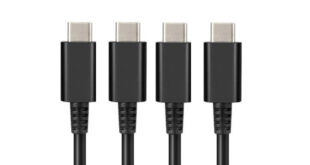"It’s like a beverage," says Jones in an analogy describing his app submission service at a small Darlington cafe. "I’ll bet you can get a Coca Cola here because people drink it here!"
CodeNGo is a B2B company co-founded by Jones which specialises in managing the relationships between Android apps and the myriad of app stores out there, acting as a go-between to ease the pain of managing several stores at once. Jones is extolling several key areas where he thinks Android developers tend to fall over.
"I’m a big fan of app reviews – find a way to get your app reviewed," he says before launching into an anecdote about a friend who went the paid review route only to blow up shortly thereafter and be approached by Google to be featured. "But be sure you’re managing your reviews on the Google store – if you’re not pulling in ratings over 3.5 you’re going to have some issues in the long run."
"I’m a big fan of getting yourself a few hundred or a few thousand downloads and looking at how the reviews are going because it’s hard to come back from 1s and 2s once you’re out there properly – flipping that can be tough. If you’re not sure the quality of your deliverable – do it the lean startup way. Get some feedback first after getting 10’000, 50’000, 100’000 downloads and then if people are saying ‘Pfft! Your s**t keeps crashing!’ then you’ll know what you need to do."
Jones gesticulates enthusiastically while describing an internally self-feeding ‘sphere’ as he calls it of apps sending installs to one another.
"There’s a new product out by Iddiction called Xplode," he explains, "which basically just enables you to trade ad space with developers. I’m a big fan of that type of thing because it’s cost-effective, and because the key to success is to put out an app, and another app, and another app and when you find one that’s a winner – use that to drive installs to all your other apps and continue to build. Use those hits or semi-hits to create your own sphere that you can build upon."
Jones prides his service on the personal management of relationships that he has with the various app stores and on his network of experts dotting the globe who know what’s going to work and what isn’t on any particular store. It’s a far cry from his dream, however:
"What we’d like to do is develop a system where we get apps, score them on the back-end and then get our store partners to be able to weigh in based on the score of an app and say ‘Any score that comes in that’s over x will be featured in our stores’. That’s the type of thing that we’d love to be able to do because our challenge is to make sure that while we can get these stores to feature our stuff, they want to make sure they’re featuring quality."
He continues to excitedly fly through his list of big things which smaller developers, the type who might use CodeNGo, neglect to do or do well, alternately praising Facebook advertising in spite of its admittedly rising costs, the various ad networks out there and adequate attention paid to search terms for discovery.
Google Play is best managed by the developers themselves according to Jones in sentiments echoing Surprise Attack’s ‘Bigger Boat‘ service, but he stands for the other vast unknowns out there – the ‘alternative stores’ as he puts it.
"Some of the alternative stores offer some of the most cost-effective downloads in the market, but you’ve gotta be in them in order to get access. Several of them have pay-per-install programs – some of them are even self-serve so you don’t even have to be looking at spending a lot of money."
Finally, Jones comes to localisation, where he notes that 100 words at 18 cents per word for language translation is nothing, even to small players. He emphatically suggests that developers hold off on trying to translate their actual apps, instead localising as many of the descriptions in their store fronts as possible just to see if that means more to any one particular market.
"It gives you a much better sense of which market, for whatever reason, your app appeals so you can know where it’s worth your while to translate and do more."
When you’re too small to have precision strategies, you’re better off being wherever your customers might be, he argues. It all comes back to his Coca Cola analogy of being wherever your customers are.

 MCV/DEVELOP News, events, research and jobs from the games industry
MCV/DEVELOP News, events, research and jobs from the games industry



